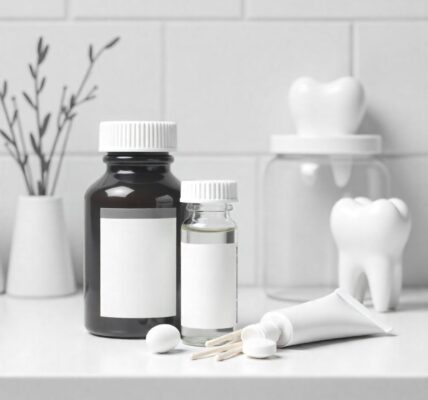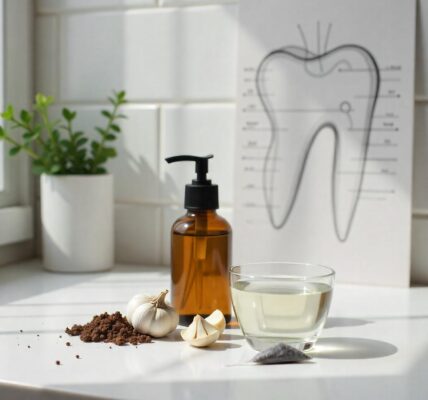A toothache can disrupt daily life, making even simple tasks like eating or speaking challenging. Whether mild or severe, controlling the pain and addressing the underlying cause is essential. This guide explores practical options for toothache relief, from natural remedies to professional treatments.
What Causes Toothaches?
Toothaches occur when the sensitive nerves inside or around a tooth become irritated or inflamed. Common causes include:
- Cavities: Decay can penetrate the enamel and irritate the inner layers of a tooth.
- Gum Disease: Conditions like gingivitis or periodontitis often lead to irritation or infection.
- Tooth Abscess: A bacterial infection can form a pocket of pus, causing intense pain.
- Sensitive Teeth: Overexposure of a tooth’s roots due to gum recession or weakened enamel can trigger discomfort.
- Teeth Grinding (Bruxism): Excessive grinding or clenching exerts pressure on teeth, leading to pain over time.
Understanding the root cause helps determine the best treatment to relieve discomfort and prevent recurrence.

Effective Natural Remedies
If you’re looking for non-medicated ways to soothe a toothache, these natural remedies can offer quick relief.
1. Saltwater Rinse
Saltwater is one of the simplest remedies to reduce inflammation and clean the affected area.
- How to Use: Mix a teaspoon of salt in a cup of warm water. Swish it around your mouth for 30 seconds and spit it out. Repeat every few hours for continued relief.
2. Cold Compress
For swelling and sharp pain, applying a cold compress can help reduce inflammation and numb the area.
- How to Use: Wrap an ice pack or crushed ice in a cloth and hold it against the cheek near the affected tooth. Use it for 15–20 minutes at a time, repeating as needed.
3. Clove Oil
Clove oil is a natural analgesic, thanks to eugenol, its active ingredient. It numbs pain and has antibacterial properties.
- How to Use: Dip a cotton swab in diluted clove oil and apply it directly to the affected tooth and surrounding gums. Avoid swallowing the oil.
4. Garlic
Garlic has antimicrobial properties that can help fight infection and alleviate tooth pain.
- How to Use: Crush a garlic clove to form a paste. Apply it to the painful tooth or chew a raw clove slowly for relief.
5. Peppermint Tea Bags
Peppermint tea contains menthol, which has a numbing and cooling effect.
- How to Use: Place a cooled, used peppermint tea bag on the sore area for about 10 minutes. This can provide temporary relief.
6. Hydrogen Peroxide Rinse
Hydrogen peroxide can help reduce bacterial buildup and soothe discomfort temporarily.
- How to Use: Dilute 3% hydrogen peroxide solution with equal parts of water. Swish it in your mouth without swallowing, then rinse thoroughly with clean water.
Over-the-Counter Options
For moderate pain, over-the-counter (OTC) medications can provide fast and effective relief.
1. Pain Relievers
Drugs like ibuprofen or acetaminophen reduce inflammation and block pain signals. Follow instructions on the label for safe use.
2. Topical Gels
Oral numbing gels, such as those containing benzocaine, can temporarily numb the affected area. Avoid excessive use, as some gels can be harmful if overapplied.
3. Desensitizing Toothpaste
Toothpaste formulated for sensitivity can protect exposed nerve endings and provide gradual relief. Use it daily to prevent recurring discomfort.

When to Visit a Dentist
While home remedies and OTC products can ease symptoms, professional treatment is critical for long-term relief and addressing the cause of a toothache. Visit a dentist if you experience any of the following:
- Persistent Pain: Severe or recurring toothaches lasting more than two days.
- Swelling: Noticeable puffiness in the face, gums, or neck.
- Fever or Malaise: These may indicate a spreading infection.
- Broken or Lost Filling: Addressing damaged dental work prevents further complications.
Professional Treatments
- Cavity Treatment: Fillings or crowns can repair tooth decay.
- Root Canal Therapy: When a tooth’s inner pulp becomes infected, removing it is often necessary.
- Cleaning and Scaling: Eliminates plaque and tartar buildup affecting both teeth and gums.
Tips to Prevent Toothaches
Prevention always beats cure. Keep your oral health in check with these simple strategies:
- Brush Regularly: Use a fluoride toothpaste twice daily.
- Floss Daily: Clean between teeth to prevent plaque buildup.
- Limit Sugary Foods: Reduce sugary snacks, which contribute to cavities.
- Drink Plenty of Water: Rinses away food particles and keeps saliva production steady.
- Schedule Regular Checkups: Dental exams help identify issues before they worsen.
Final Thoughts
Finding relief from a toothache involves a combination of short-term remedies and addressing underlying causes. Start with natural solutions like saltwater rinses or clove oil to alleviate immediate discomfort. For persistent or severe pain, rely on over-the-counter medications and consult a dentist for a permanent fix. By maintaining good dental habits and regular visits to your dental professional, you can avoid painful toothaches altogether.
Take control of your oral health today and find the relief you need!





